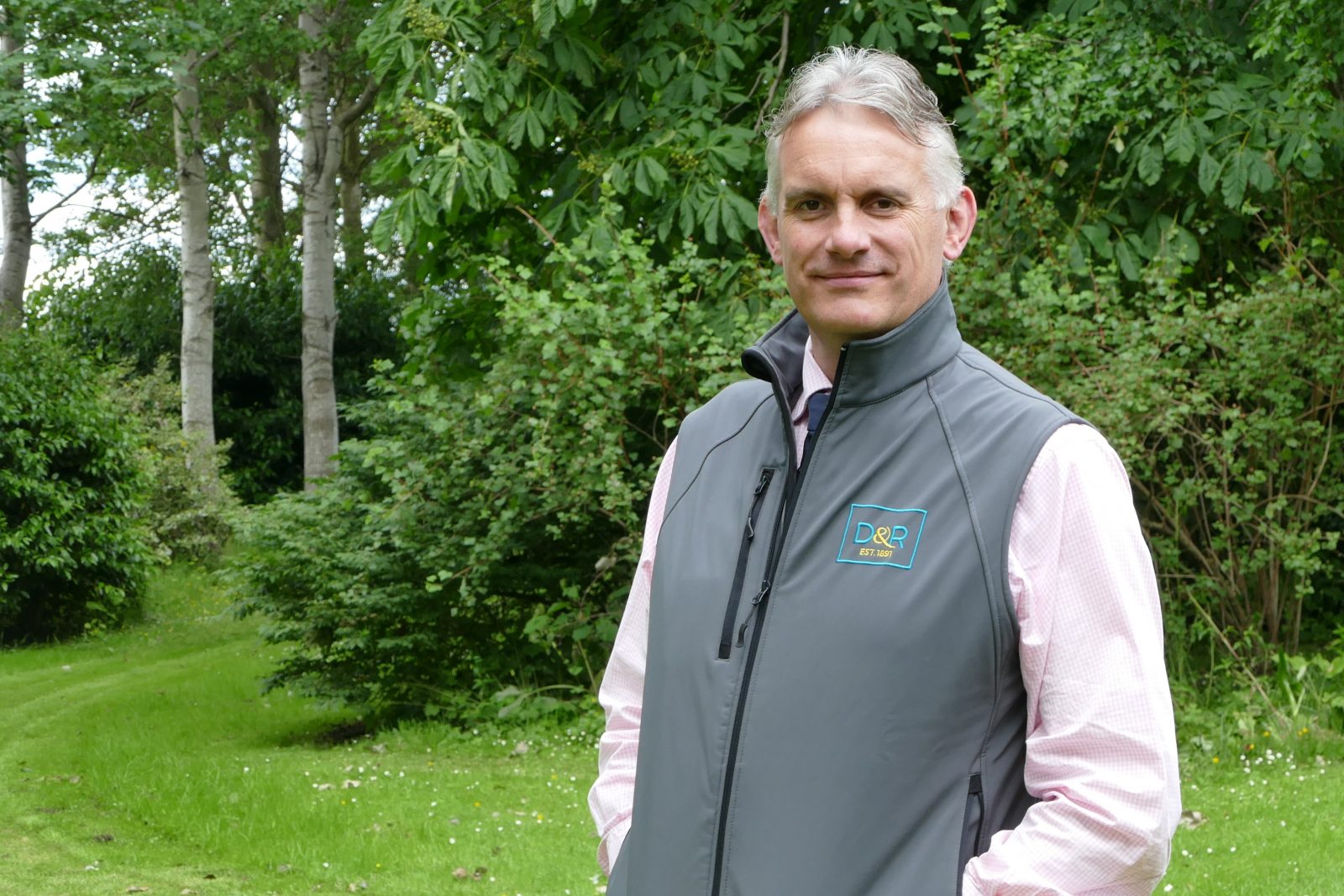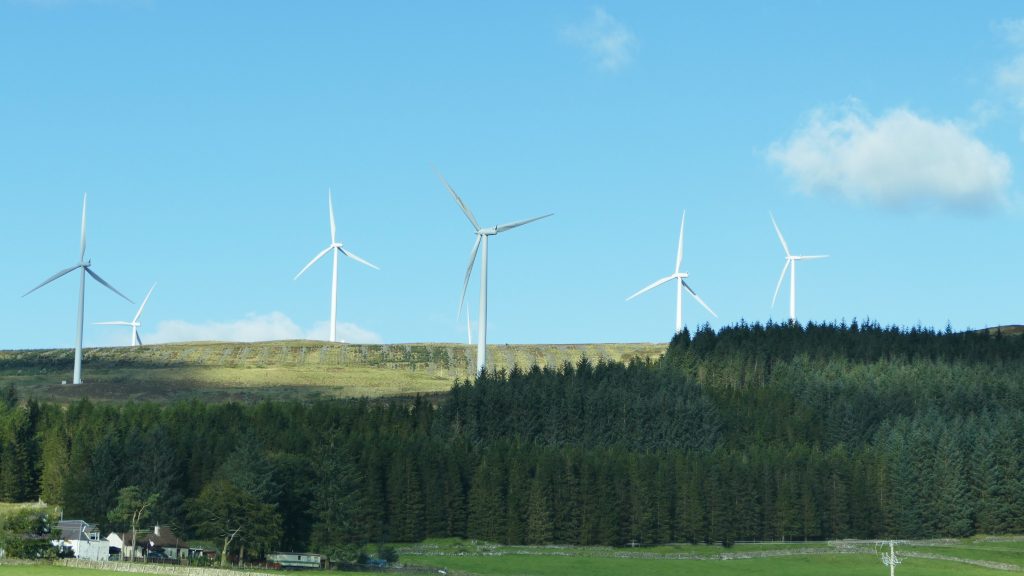Keeping the power of renewables and energy storage in your hands
By Derek Bathgate, Director at Davidson & Robertson

Ahead of the Low Carbon Agriculture 2023 Conference (7-8th February) at Stoneleigh, Derek Bathgate who leads on renewables and energy development for Davidson & Robertson has been reviewing how this dynamic market can benefit landowners and provides advice on how best they can grant rights to developers over their land.
The UK Government strategy to be net zero by 2050, includes plans to decarbonise UK power system by 2035. Unveiled in October 2021 ahead of COP26 in Glasgow, the aim is to build a home-grown energy sector that is greener and will also help mitigate against global wholesale energy price rises.
In Scotland, the transition from fossil fuels to renewable energy sources is accelerating, with many developers approaching landowners for rights over land to create wind and solar farms. In addition, battery energy storage sites, close to large electricity sub-stations are much sought after by developers. Landowners are being enticed by developers with what can look like an appealing opportunity to secure long term revenue from relatively small areas of land, as well as helping the UK reach net zero carbon goals.
While viable solar sites require in excess of 90 acres of Grade 3 agricultural land (or poorer) and a nearby and low cost grid connection, battery storage sites can be viable over as little as 2 – 3 acres (albeit 5 acres is a better planning figure).
In seeking to transform the UK’s energy infrastructure, Scotland is already leading the way with on-shore wind energy and battery storage. There are also numerous off-shore wind projects in planning, including ScotWind offshore wind which will create an additional 25GW of renewable energy capacity.
Europe’s two largest battery storage facilities known as the “Scottish Green Battery Complex” at Hunterston and Kincardine in Central Scotland, are due to be operational in 2024. They comprise of two 400 MW battery facilities, each providing 800 MWhrs of energy storage capacity, which will help balance energy supply and demand.
For landowners with substations close by, leasing land for battery storage can deliver a very attractive and substantial revenue stream from their land, provided that professional advice has been taken on the commercial and legal terms that form the agreements with the developer. If developers haven’t already been knocking on these farmhouse doors yet, it is likely they soon will be.
Whilst the majority of developers are keen to consider landowners needs and form long-term business relationships, there are a minority of less scrupulous developers who are only focussed on securing rights in order to ‘flip’ them to third parties and make a fast buck.
This commercial sector is not subject to regulation, it operates on a freedom of contract basis, i.e., almost anything goes if parties agree such terms. On reviewing several farming forums and our experience of clients contacting us directly or through their solicitors, numerous farmers have asked for feedback or advice after having been approached by developers asking them to sign Letters of Authority for grid connection, or Exclusivity Agreements without providing a clear idea of the financial benefits of the proposed development, the rights to be granted, and the developer’s ability to deliver a scheme. This applies to battery storage, wind and solar development.
Thankfully, landowners who have been through the process already, and now have energy development experience recommend others take commercial advice from a Surveyor with experience in the renewables and energy sector.
Seeking expert help at an early stage – before any documents presented by developers are signed – will make a huge difference both to the bottom line and to the level and duration of rights granted, thus keeping the power of renewables and energy storage in the landowners’ hands. Any credible developer seeking land rights will pay the landowner’s (or secure tenant’s) reasonable costs for taking surveyors, solicitors and sometimes accountants advice to secure a development deal.
Davidson & Robertson has extensive experience in advising and supporting clients with on-shore wind and solar farm developments, as well as those affected by battery storage sites including the Scottish Green Battery Complex, resulting in robust and market value agreements that have seen gigawatts of capacity built out fed into the grid.
Derek Bathgate leads on renewables and energy development within Davidson & Robertson and can be contacted on 01292 265 851 or DB@drrural.co.uk



